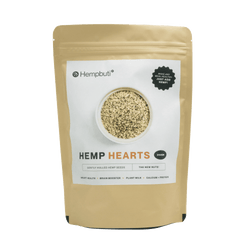Understanding Naproxen and Ibuprofen
Naproxen and Ibuprofen are two of the most commonly used NSAIDs (non-steroidal anti-inflammatory drugs) in India. Both help reduce pain, inflammation, and fever, but they have distinct differences in how they work, how long they last, and which situations they’re best suited for.
How Do They Work?
Both drugs work by blocking the production of prostaglandins—chemicals in your body that trigger pain and inflammation. The key difference lies in their duration of action:
-
Ibuprofen starts working quickly, within about 30 minutes, but lasts for around 4 to 6 hours.
-
Naproxen takes a little longer to kick in (1 to 2 hours) but provides longer relief, up to 12 hours.
This makes naproxen a better option for managing chronic or ongoing pain, while ibuprofen is often used for quick, short-term relief.
Common Uses
| Medication | Typical Uses |
|---|---|
| Ibuprofen | Headaches, dental pain, menstrual cramps, fever, muscle aches |
| Naproxen | Arthritis, back pain, tendonitis, longer-lasting musculoskeletal pain |
Safety: Gastrointestinal Risks
Both medications can irritate your stomach lining, especially if taken frequently or on an empty stomach.
-
Naproxen has a higher chance of causing stomach ulcers if not taken with food.
-
Ibuprofen is generally gentler for occasional use but carries increased risks if taken in high doses or for a long time.
Always take these medicines with meals or milk to reduce stomach discomfort.
Cardiovascular and Kidney Concerns
-
Naproxen is considered to have a somewhat lower cardiovascular risk when taken as directed.
-
Ibuprofen, especially at higher doses, may increase the risk of high blood pressure and heart problems.
Both drugs can affect kidney function, particularly if used often or when dehydrated.
Important Drug Interactions and Who Should Avoid Them
Avoid combining naproxen or ibuprofen with:
-
Blood thinners like warfarin or aspirin
-
Other NSAIDs
-
Corticosteroids
-
Diuretics and blood pressure medicines (may affect kidney health)
-
SSRIs (may increase bleeding risk)
People with existing ulcers, heart disease, kidney problems, or those on these medications should always consult a healthcare professional before use.
Which One Should You Choose?
-
For quick, short-term relief like headaches or menstrual cramps, Ibuprofen is usually preferred.
-
For long-lasting or chronic pain, such as arthritis or back pain, Naproxen might be more effective.
Exploring Safer, Gentle Wellness Alternatives: CBD Oil
Due to the potential side effects of prolonged NSAID use, many Indians are turning to more natural, supportive options like CBD oil.
CBD (cannabidiol) is a plant-based compound known for its anti-inflammatory and pain-relief support without the harsh side effects of NSAIDs. Indian brands like Hempbuti offer clean, lab-tested CBD products made to complement your wellness routine.
While CBD is not a replacement for medical treatment or painkillers, it is gaining popularity as a holistic support option under expert guidance for managing day-to-day discomfort and inflammation.
Final Thoughts
Both Naproxen and Ibuprofen have their place in pain management, but understanding their differences and safety profiles helps you make informed choices.
If you’re considering regular use or have health concerns, always consult your doctor first. Also, think about integrating gentle wellness alternatives like Hempbuti CBD oil to support your body naturally and safely over time.
Ready to explore natural wellness?
Discover how Hempbuti CBD oil can complement your health journey with pure, trusted products made for India.








